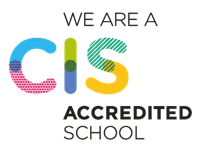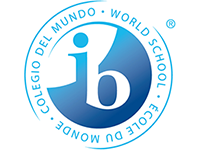English is the language of instruction at KIST. With the exception of foreign language classes and any world language club activities that may be offered, students are expected to communicate in English at all times at school.
As outlined in our admissions policy, in order to gain admission to KIST, applicants are required to participate in testing to check their language ability. Applicants for the Secondary School, in particular, must be able to demonstrate a high level of English ability in order to cope with the demands of studying specialized subjects in English. Because of this, due to the nature of the course of study, applicants seeking admission to Grades 8 and above who are identified as requiring language support will not be accepted.
However, in order to support the large number of students at KIST from cultural backgrounds where English is the not their native language, and in consideration of the school’s mission to “provide academically motivated children from diverse social and cultural backgrounds with a high-quality education,” various systems are in place to further develop the English of students who require additional help in order to fully access the curriculum.
English language support program
While we recognize that all instructional staff are language teachers and that language must be taught across the curriculum, not only in designated language classes, we also believe that it is important to recognize each student as an individual with an individual learning style and individual needs. To cater for the needs of students requiring support in developing language skills, in addition to the instruction provided by regular subject teachers, specialized ELS instructors work closely with students from Grade 6 to 10 who have been identified as requiring support.
English language support is provided in the Secondary School by the ELS instructors to meet the needs of non-native English-speaking students or other students whose level of English does not allow them to fully access our curriculum independently. Depending on the English proficiency level of the student, language support may take one or more of the following forms:
In-class English language support
In-class support is provided for students in Grades 6 through 10 who have not yet reached a level of English language proficiency which facilitates independent success in the classroom. All students nominated by their subject teachers, and reviewed by the ELS Coordinator, receive in-class language support primarily during their English Language and Literature class, and possibly other subjects such as Individuals and Societies and Science, through measures such as: assessment and task scaffolding, vocabulary assistance and extension, small group sessions, research and assessment assistance, and other forms deemed necessary.
Out-of-class English language support
Students in the Secondary School are expected upon admission to have relatively strong English proficiency and thereby be able to function, with provided support if needed, in the classroom context. In special situations, out-of-class support (‘pull-out’ support) may be offered to support students in need. Such support may be provided outside of the regularly scheduled day (before/after school) or, upon consultation with the subject teacher, students may be pulled out of their respected subject time to work one-on-one with the instructor to clarify or review content from the class.
Before-school Academic Writing classes
Students in the Secondary School in need of additional support in academic writing are enrolled in additional lessons throughout the week. Academic Writing classes are intended for students who are in English Language and Literature but still need to improve their writing. These classes develop student understanding of different writing genres and support students in using correct writing forms appropriate to the demands of the writing context. Academic Writing classes are held in the mornings before first period throughout the week.
Other methods of support include:
- Language-focused extra-curricular club activities
- An annual Summer Academic Program held during the summer vacation







